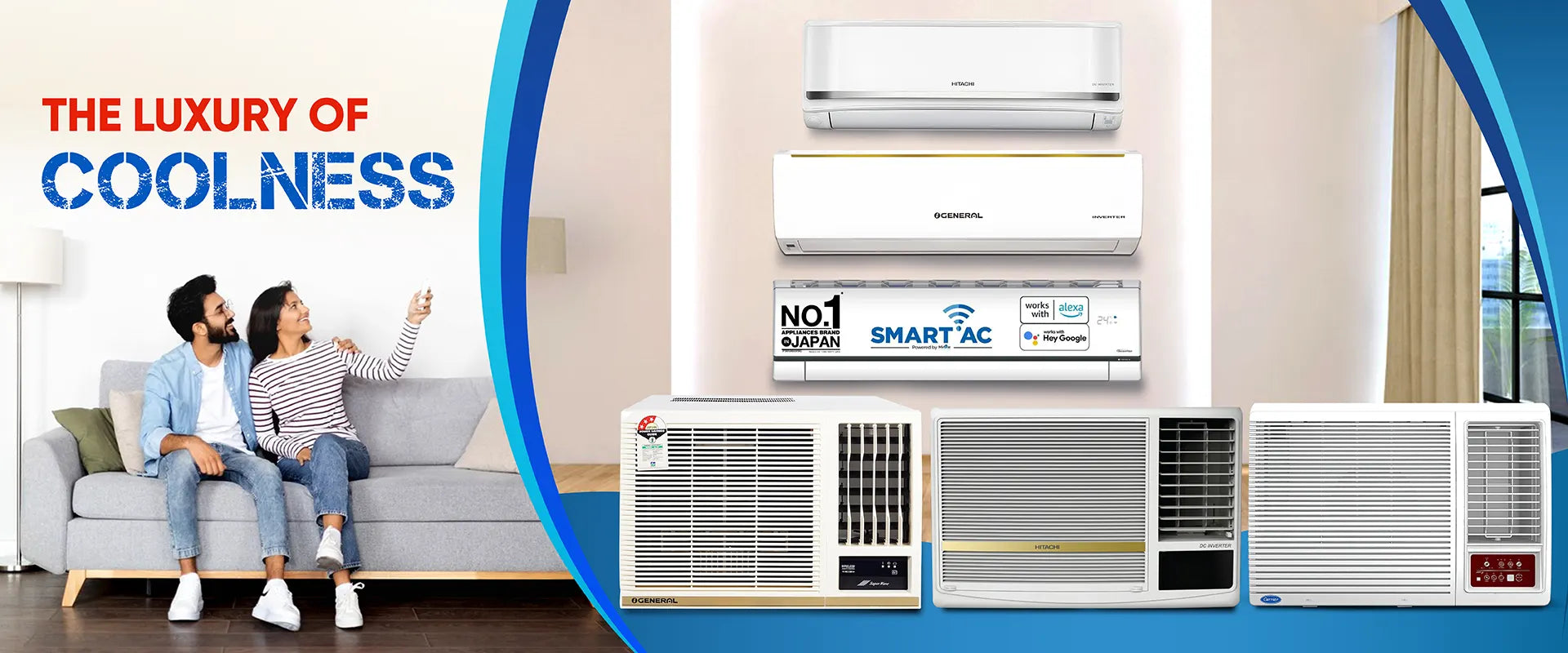Inverter AC vs. Non-Inverter AC – Which One to Buy?

When purchasing an air conditioner, one of the most common dilemmas is choosing between an Inverter AC and a Non-Inverter AC. Both have their own set of advantages and drawbacks, making it essential to understand their differences before making a decision. Let’s dive into the details to help you make an informed choice.
What is an Inverter AC?
An Inverter AC uses advanced technology that regulates the compressor's speed based on the cooling demand. Unlike traditional ACs, which switch on and off frequently, inverter ACs adjust the compressor speed continuously, ensuring consistent cooling and energy efficiency.
Key Features of Inverter AC:
-
Variable-speed compressor for precise temperature control.
-
Energy-efficient operation, reducing electricity bills.
-
Quieter performance with fewer vibrations.
-
Longer lifespan due to less wear and tear.
What is a Non-Inverter AC?
A Non-Inverter AC operates at a fixed speed. It turns the compressor on and off periodically to maintain the desired temperature. This start-stop operation consumes more energy and causes fluctuations in temperature.
Key Features of Non-Inverter AC:
-
Fixed-speed compressor.
-
Consumes more power due to frequent on-off cycles.
-
Noisy operation compared to inverter ACs.
-
Less expensive initially but higher operational costs.
Difference Between Inverter AC and Non-Inverter AC
|
Features |
Inverter AC |
Non-Inverter AC |
|
Compressor Speed |
Variable speed |
Fixed speed |
|
Energy Efficiency |
Highly energy-efficient |
Less energy-efficient |
|
Cooling Performance |
Consistent and stable temperature |
Fluctuating temperature |
|
Noise Level |
Quieter operation |
Noisier due to frequent cycling |
|
Initial Cost |
Higher upfront cost |
Lower upfront cost |
|
Operational Cost |
Lower electricity bills |
Higher electricity bills |
|
Lifespan |
Longer lifespan due to smooth operation |
Shorter lifespan due to frequent cycling |
Pros and Cons of Inverter AC
Pros:
-
Energy-efficient, leading to lower electricity bills.
-
Quieter performance with less noise.
-
Consistent and steady cooling.
-
Environmentally friendly due to lower power consumption.
Cons:
-
Higher initial cost.
-
More expensive to repair due to advanced technology.
Pros and Cons of Non-Inverter AC
Pros:
-
Lower upfront cost.
-
Easy and affordable maintenance.
Cons:
-
Higher power consumption.
-
Noisy operation.
-
Inconsistent cooling with temperature fluctuations.
Which One Should You Buy?
The choice between an Inverter AC and a Non-Inverter AC depends on your preferences, usage patterns, and budget.
-
Choose an Inverter AC if you prioritize energy efficiency, long-term savings, and consistent cooling. It’s ideal for frequent or continuous use, making it suitable for homes and offices.
-
Choose a Non-Inverter AC if you are looking for a budget-friendly option for occasional use, such as in guest rooms or spaces where the AC won't run for long hours.
Final Verdict
While Inverter ACs have a higher upfront cost, their energy efficiency and long-term savings make them a better investment. On the other hand, Non-Inverter ACs may suit those with a limited budget or occasional cooling needs. Carefully consider your usage patterns, budget, and energy consumption goals before making your final decision.





